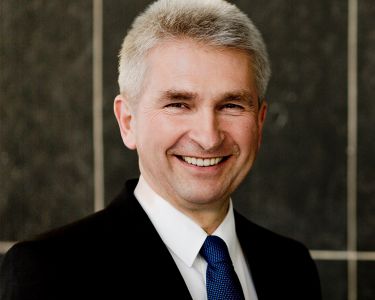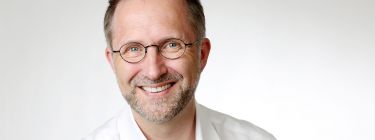
Intro: The Next Renaissance is a Renaissance of the Next
Lead of The Next Renaissance Project & Director of the European Creative Business Network (ECBN)
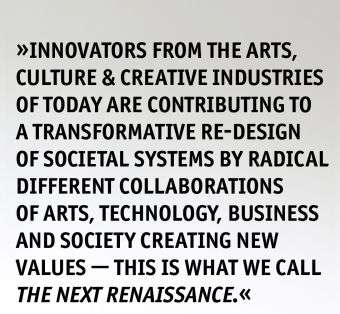
Are we the chicken or the egg?
The next and new is happening daily—in the digital world even every second—as viewers of next developments are also senders turning the next to potential news for others. One click to RT: New-ism meets Instant-ism. So is there really any room for a Renaissance, any chance to even realise the next new dimension in societies´ evolution, before it is surpassed by the next tweet, taking 100 of millions in elevators of soaring hopes or self-enhancing frustration? This is why the movement to think more slowly, more deeply and more from a 360° perspective is gaining traction.
There truly seems no shortage of the next big trend or of moon shot innovations. But there’s no shortage of crises either, from the next pandemic to the next hunger and housing crises, real estate and banking crises, mobility and climate crises. To our societies, crises are intermediate states on the way to their success, the necessary evil, for some even—as in economy—the prerequisite for recovery. This crisis concept is a pact for the wealth promise of societies after World War Two—and its social cohesion and peace.
But if crises become ever faster and ever longer, if recovery periods become shorter or are omitted, then the grand narrative of our society is less and less sustainable: “The Next Big Thing“ is longer the next thing to hope for or to expect. And even more: The belief in “Real Next“ is challenged by the relentless ticker tape of daily updates, breaking news and constant social media notifications popping up. It might be no accident that just in this setting more and more citizens believe that their children will not live a better life than their own—despite the fact that this generation has accumulated an unprecedented amount of wealth and health.
The Next?
“It is hard to see a way to a golden age, especially since we know we need to shift our economic order and a way of life that is materially expansive, socially divisive and environmentally hostile. And doing that cannot be grasped by a business-as-usual approach as it takes a while for new ethical stances and new ways of operating to take root and to establish a new and coherent world view.“1
The impression of missing out on the next is re-enforced by the ever-growing need for the next big transformations to tackle climate change and save the planet from overheating. For 30 years now, transformation toward a sustainable society has been debated in professional circles and while a bundle of theories emerged how to change complex systems in a wicked crisis—from Uwe Scheidewind’s Zukunftskunst to Mariana Mazzucato’s Mission Economy—societies at large are unwilling or reluctant to embrace change, especially quick change, without guarantees about being on the winning side after such change. Even with the emergence of activist groups like Fridays For Future—the youth-led global climate crisis strike movement—and declarations of a climate crisis in many cities, speedy realisation in societal change is not widespread. It is five minutes to midnight and still the “Next” seems to remain a grim inevitability rather than a cheerful freedom.
But what if the “Next“ is something different?
What if… generating the next generation of talents, jobs, housing, cities and streets, growth and wealth in the current system of doing the next thing no longer works given the current paradox of a raging standstill?
What if… for change of the societal pact and its structures to happen, understanding and researching the “next” as a process for the systemic “next” is necessary?
What if… the “next” is an innovative method of change-making?
The Next Renaissance!
The “next” in the 2020s must be a novel system which is able to produce the next generation of talents, jobs, housing, cities and streets, growth and wealth—and a radically different societal pact.
The World Economic Forum just published for the Davos Agenda 2022 a proposal for a radically different pact of state and business. “That redesign of all the different levers that the state has—from procurement, grants, loans, bringing in conditionality to have a proper symbiotic social contract, and more—is much harder than just talking about it… That requires a very different type of public-private partnership,” as Professor Mariana Mazzucato explains.2 in other words, a new social contract is needed. Klaus Schwab, Founder of WEG, and Thierry Malleret call for a new Great Narrative.
C40, a union of 97 cities representing 25% of the global economy, implements the “Race to Zero” global campaign for cities to “immediately proceed“ with carbon reducing projects.3
The UNESCO Creative Network pushes for a new cultural contract in society wherein the public sphere is approached “with a new perspective that public authorities, in cooperation with the private sector and civil society, can make the difference and support a more sustainable urban development suited to the practical needs of the local population.”4
In addition, industries can promote new ways of making the radical “next”—or “innovation“, as industry might call it. For example, even Digital Europe claims “creating digital inclusion and green growth.“5
Innovators from the arts, culture and creative industries of today are also contributing to a transformative re-design of societal systems by radical different collaborations of arts, technology, business and society creating new values — this is what we call the Next Renaissance.
It is all transformative
The world stands at the cusp of a critical moment. Our crises, often dark and gloomy, can be opportunities and can provide gateways from one world to the next as new agendas come together in unprecedented ways. There is a mood and a movement emerging. We are seeing the possibility of creating a different world driven by other principles. It is a compelling story. Think eco-principles and the green transition, the circular economy, new concepts like resilience, co-creation and the participatory imperative—and let’s not forget a digitising world that allows the cultural and creative economy to run through systems like electricity in its inventiveness. Together it is all-transformative.
“It is a compelling story. Think how eco-principles are beginning to shape our mindset and how that provides the frame and therefore courage to move towards a green transition where the circular economy notion plays a crucial part. Think too how newer concepts like resilience help us work through the tasks ahead or how co-creation and the participatory imperative helps harness the collective imagination (since transformation is a collective endeavour). Think here too of the notion that the world is our commons. And not to forget a digitising world that allows, in particular, the cultural creative economy to run through systems like electricity in its inventiveness and with its immersive capacities. Sometimes the speed of the possibilities are dizzying and we always must be alert that we, rather than the technologies, are in control.”6
The Green Transformation “is not just an environmental or economic project: it needs to be a new cultural project for Europe,“ as EU President Ursula von der Leyen pointed out 2021.7 And so started the lead initiative in Europe raising hopes for the Next Renaissance to really happen. But—it should be added—this will not happen without a Cultural Transformation, without a radically different pact of the arts, culture and creative industries with society.
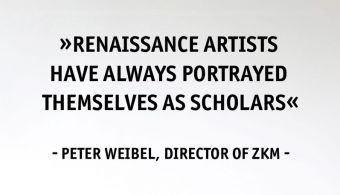
Re-Designing Systems
Our contribution to this Next Renaissance takes a closer look at examples of re-designing the systems of arts, culture and creative industries just as arts, culture and creative industries are re-designing systems of industries and markets, of cities and regions or of technologies and societal changes. And let’s not forget how the arts and culture re-design technologies.
In 1435 “Alberti published the treatise On Painting, leading to inventors using the camera obscura to automate perspectival drawing, and, within decades, Louis Daguerre and William Henry Fox Talbot industrialised it by inventing photography.“8 The iPhone took photography to a final stage of everyday use and empowered potentially everyone to be an innovator, to have a new take on and picture of the world! “Did Alberti imagine streaming media when he wrote On Painting? Imagine the value unleashed by 21st-century infrastructure of media—from streaming to 3D—which supports decades, even centuries, of progress.”9
While this book takes a closer look at examples of re-designing the systems of arts, culture and creative industries, it is not devoted to a historical analysis or even a language-sensitive analysis of historical Renaissance. While some authors here find analogies between the present-day and previous Renaissances, we did not look into the social settings of these times. Instead, this book works with an image, a perception of the historical Renaissance—but this picture does not necessarily resemble more rigorously historical representations of those earlier Renaissances that we get from scholars of the subject. For example, the word “art“ was not used in Renaissance times as we understand that term today. In fact, Science and Art were not distinguished as separate fields in the historical Renaissance as they are today.
Rethought Principles
So we must be strict and clarify a rule: Talking of a Renaissance today does not give us any vocabulary or even an understanding with which to discuss the historical Renaissance. Nevertheless, we are able to develop our own fiction of a future—even if it is built on a fiction of historical truth.
However, the creative economy also redesigns attitudes, behaviours and values: “A changed mindset, rethought principles, new ways of understanding and generating ideas are the cornerstones of change.” 10 After a first rush of technological solutions for a resilient society—the early (almost naïve) Smart City Movement—it is now common sense that without citizen engagement and their adaption of new values and behaviours a resilient society will not succeed.
“The Next Renaissance”’ is a collection of diverging perspectives which are nevertheless all united in one purpose: to thrive and unite through the diversity of creativity and culture for a new social system of changes which is as inclusive as possible—though which in addition takes the uncomfortable beyond the horizon into account. Of course, debating the Next Renaissance is an ongoing, inherently incomplete and—if you like—systematically a-rational undertaking; still it is unavoidably necessary. In the diversity of contributions we received, we discovered common threads for a system re-design—and we might discover other threads as well.
We decided to share these joint “rethought principles” and cluster the book accordingly, taking it as an opportunity to overcome the idea that a system re-design for an inclusive transformation towards a resilient society can be built on sectorial clusters—on a 19th-century thought model of excluding professions from value chains by defining artificial sectorial borders.
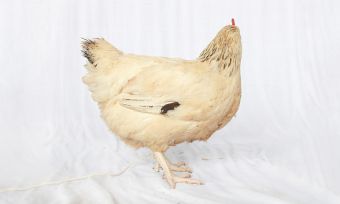
Appraisal, not Praise
This book is published in a time of “constant lip service to Renaissance that is so much characteristic of our times. The self-made digital economy tycoons like Steve Jobs, Sergey Brin and Larry Page, or Elon Musk are celebrated as the contemporary equivalents of the Renaissance man…Samuel Beckett’s ‘Fail again. Fail better’ quote has become the most famous inspirational quote of Silicon Valley culture.”11
We must aim not for praise, but for appraisal, a critical assessment of the European role in a global re-design12 and self-reflections. Still, we must not lose sight of the unique capacity of culture, as Geoff Mulgan says, “the imaginative space that is so badly needed now… That may also prompt [them] to work harder to be part of the solutions rather than part of the problem and to help us to be actors not just observers.”13
Time is short to make the big difference and driving this change are many—politicians, activists, civil society, researchers, inventors, artists, entrepreneurs, business, writers and more. We need to harness their collective talents, will, energy, intelligence and resources to create a more human-centred world based on one-planet living.
Innovators in the creative economy—at least all the contributors in this publication—share the commitment and the belief that the Next Renaissance is empowering citizens to be more creative in shaping their own future. In a nutshell: Now is the time to act and to turn ideas into reality.
No chickening out.
Sources
1 Charles Landry
2 https://www.weforum.org/agenda/2022/01/mariana-mazzucato-on-rethinking-the-state/
3 https://www.c40.org/what-we-do/building-a-movement/cities-race-to-zero/
4 https://en.unesco.org/creative-cities/content/why-creativity-why-cities
5 https://www.digitaleurope.org/about-us/
6 Charles Landry
7 von der Leyen, https://europa.eu/new-european-bauhaus/index_en
8 Ali Hossaini
9 Ali Hossaini
10 Charles Landry
11 Pier Luigi Sacco
12 Johannes Ebert
13 Geoff Mulgan
Bernd Fesel
Initiator & Lead of The Next Renaissance Project and Managing Director European Creative Business Network
Mr. Fesel has experience in CCSI for over 30 years and is currently the director of the European Creative Business Network (ECBN), a not-for-profit organization of over 170 members from 44 countries that supports and develops the cultural and creative industries in Europe. Prior to this role, he was a serial entrepreneur within the CCSI sector, held the role of vice director of the European Capital of Culture in the Ruhr Region and was senior advisor to the legacy institute of RUHR.2010 til 2018: the european centre for creative economy in Dortmund. He played a key role in EU initiatives such as like JRC-Creative City Monitor, Voices for Culture program and ENTACT and setup a European Research Alliance on Spillover-Effects of Culture and Creativity. Since 1990 Bernd is founder of startups, architect of novel public organisations, inspirator for programs and policies for CCSI, friend and connector of acclaimed artists as well as influencer and publisher. Also he was appointed adjunct professor at the Caspar-David-Friedrich-Institut in Greifswald.
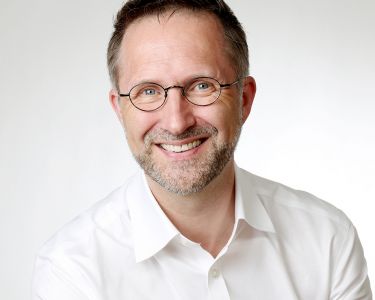

Preface to The Next Renaissance
Minister of Economic Affairs, Innovation, Digitalization and Energy of the State of North Rhine-Westphalia
Preface
Europe is undergoing a period of fundamental change. Whilst this comes with great challenges, we ought to recognise the enormous opportunity behind it. The top five issues of our time in all their complexity – globalisation, digital revolution, climate change, pandemics and natural disasters – are adding extra urgency to the question of where our European society is – or should be – heading. What do we want the future to look like? How are we proposing to get there? What type of innovation do we want to push forward for the benefit of our society? Those are questions of real concern.
Renaissance and its synonym, ‘rebirth’ are words that evoke inspiration. After all, the Renaissance period was marked by a variety of major innovations in art, science, technology, architecture and the trades. The ‘discovery of humanism’ was the game changer. Artists like Leonardo da Vinci, Artemisia Gentileschi or Albrecht Dürer are testimony to what really transformed things back then – the recognition of humans as subjects and as a creative and innovative force.
This wealth of ideas, of human creativity, needs to be called upon once more. We must use the potential of innovation in all its variety and simultaneity across economy and society and use it to get on top of the big challenges – digital transformation and the move towards climate neutrality by 2045. The key to innovation will always be the combination of creativity and technology.
The digital revolution has a huge impact on our proven concept of a democratic and liberal Europe. Future technologies such as artificial intelligence or blockchains hold enormous potential for innovation that we must exploit, but responsibly and in line with ethical values. Digital transformation of public services is the key to instilling trust in the work of government.
The transition to a climate-neutral economy and society is going to affect, if not upturn, all walks of life. We need renewable materials for the circular economy, new architectural and transport strategies, realignment of the energy system and forward-looking town planning philosophies.
There is a multitude of options for creative minds, innovative approaches and new business models. A major role is already set aside for the creative industries when it comes to realising the ‘European Renaissance’ envisaged here.
So, the EIT initiative to start a Knowledge and Innovation Community for the creative industries comes at the right time. North Rhine-Westphalia is backing the first-rate application that has been submitted for the launch of a creative industries KIC. The idea is that, over fifteen years, this agency will be spending some 500 million euros on innovation in the creative sector, designed to address the big challenges Europe is faced with. Such investment will be in line with the principles governing the Knowledge and Innovation Communities which the European Institute of Innovation and Technology (EIT) launched the first call for in 2008, banking on the interaction of education, research and innovation.
In these fast-moving times, the resourcefulness and innovation prowess of the creative industries are needed in Europe more than ever. The sector embodies crucial abilities, something that is more and more appreciated. The World Creativity and Innovation Day has been amongst the United Nations’ official theme days since 2018. In 2020, the World Economic Forum placed creativity at Number 3 of the ’TOP 10 Skills Needed’.
Europe needs to return to the heydays of ingenuity and innovation fervour. With a view to a European Renaissance of creativity, the ICE consortium is providing us with this publication which covers a wide spectrum of topics and will surely make for inspirational reading.
Prof. Dr. Andreas Pinkwart
Minister of Economic Affairs, Innovation, Digitalization and Energy of the State of North Rhine-Westphalia
Prof. Dr. Andreas Pinkwart, born in Seelscheid, Germany in 1960, after a banking apprenticeship he studied macroeconomics and business economics at the University of Münster and the University of Bonn from where he obtained his doctoral degree in 1991. He subsequently ran the office of Dr. Hermann Otto Solms, chairman of the FDP parliamentary group in the Bundestag, before continuing his academic career with professorships in Dusseldorf and Siegen. In 2002, he became a member of the German Bundestag and state chairman of the FDP (Free Democratic Party) in North Rhine-Westphalia. From 2005 until 2010, he was Minister for Innovation, Science, Research and Technology as well as Deputy Prime Minister in North Rhine-Westphalia. In 2011, he returned to the scientific sector. Until June 2017 Prof. Pinkwart was Dean of the HHL Leipzig Graduate School of Management and and ever since holds the Stiftungsfonds Deutsche Bank Chair for Innovation Management and Entrepreneurship. Since June 2017 he is Minister of Economics, Innovation, Digitalization and Energy of the State of North Rhine-Westphalia.
Picture © Ministry of Economic Affairs, Innovation, Digitalization & Energy, NRW
